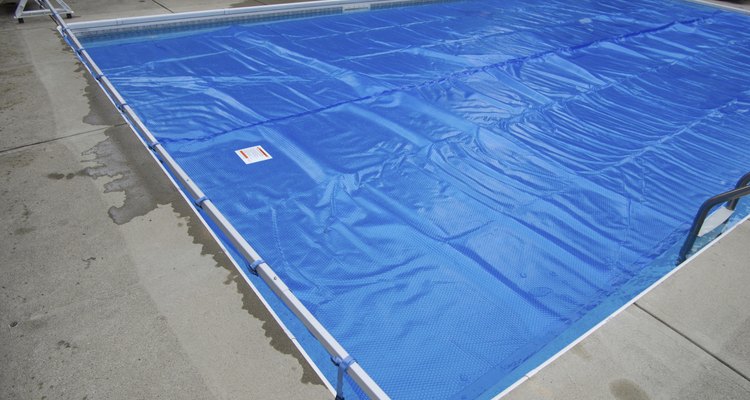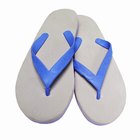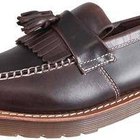
David Parsons/iStock/Getty Images
Selecting organic cleaners for a vinyl pool liner allows you to make eco-friendly choices and use cleaning supplies that are safe to breathe. Keene State University's Green Cleaning file suggests using safe, non-toxic cleaners. It lists a solution of vinegar and vegetable oil-based soap for cleaning vinyl. To make organic cleaning effective, invest in a brush designed for cleaning pool liners. Organic dish soaps and common household products offer organic options for keeping the pool liner clean and helping to make it last.
Dish Soap
Many companies make organic dish soaps. These products are usually biodegradable products with a vegetable-oil base. Dish soap offers a safe cleaning option for a vinyl pool liner. A dish soap and warm water solution helps to clean off algae and other buildup. Adding white vinegar to the soap and water mixture improves the cleaning power due to the acid nature of the white vinegar. By cleaning the pool liner often to avoid set-in stains from accumulated debris, an organic soap and water solution will usually be sufficient to get the pool liner clean.
Ascorbic Acid
Ascorbic Acid, also known as vitamin C, helps to clean vinyl pool liners. Pool supply stores carry it for this purpose. The mild acid helps to remove stains and discoloration without harming the vinyl, according to the Cool Pool Deals website. Ascorbic acid comes in crystal form, crushed vitamin C tablets also work for this, but make sure they're ascorbic acid rather than rose hips. Mixing the ascorbic acid with a small amount of water creates a solution suitable for spreading on discolored areas of pool liner. It's most effective to leave it on for several minutes, scrub the area with a brush and rinse thoroughly afterward.
White Vinegar
White vinegar provides an environmentally safe means to remove mildew and other stains. You apply it with a rag or sponge. Leaving it on for a few minutes allows the mild acid to remove stains. Using a brush on the vinyl pool liner after applying vinegar helps to remove stains and debris. As with removing stains from fabric, brush in both horizontal and vertical directions to thoroughly remove discolorations. It's safe to use undiluted vinegar to treat stubborn stains. This helps with removing brown streaks caused by leaves and other debris that discolors pool liners.
Borax
Borax is a basic household cleaner and a naturally occurring mineral. It's used for disinfecting, deodorizing and stain removal. Borax even helps to prevent mold. It's sold with laundry supplies and is commonly used as a detergent booster and household cleaner for everything from carpet stains to wall washing.
Borax is a strong alkaline cleaner. While it's natural, it can cause eye irritation and is toxic if taken internally, warns Keene State College. It should be stored in a clearly marked container out of reach of children. For pool liner cleaning, combining borax with a bucket of warm water creates a solution that's convenient to apply with a sponge or sponge mop. Making a thick paste of borax with a little water creates an effective stain-remover. Leaving it on for a few minutes gives it time to clean the stain and reduces the time you have to spend scrubbing. As with any product, it's best to test borax in an inconspicuous area, such as on the liner's edge on the back. Borax could lighten the color of colored liners.
Related Articles

Skin Problems Caused by Swimming Pool ...

Benefits of Green Tea Soap

List of Soaps for Acne

How to Clean Palladium Jewelry

How to Clean Nylon With Polyurethane ...

Are There Any Harmful Ingredients in ...

Dangers of Spray on Tan

How to Get the Stains Out of White ...

How to Keep Mosquitoes Away When ...

How to Disinfect Flip Flops With Bleach

How to Clean Dr. Martens Shoes

Neutrogena T-Gel Shampoo Ingredients

How to Cover a Really Red Scar

Remedies for Unblocking Stubborn ...

The Benefits of Castile Soap

Homemade Daily Shower Cleaner Spray

How to Use Green Color-Corrector Powder

Makeup Primer vs. Lotion

Phisoderm Ingredients

Will Cream of Tartar Whiten Teeth?
References
Resources
Writer Bio
Gryphon Adams began publishing in 1985. He contributed to the "San Francisco Chronicle" and "Dark Voices." Adams writes about a variety of topics, including teaching, floral design, landscaping and home furnishings. Adams is a certified health educator and a massage practitioner. He received his Master of Fine Arts at San Francisco State University.
Photo Credits
David Parsons/iStock/Getty Images